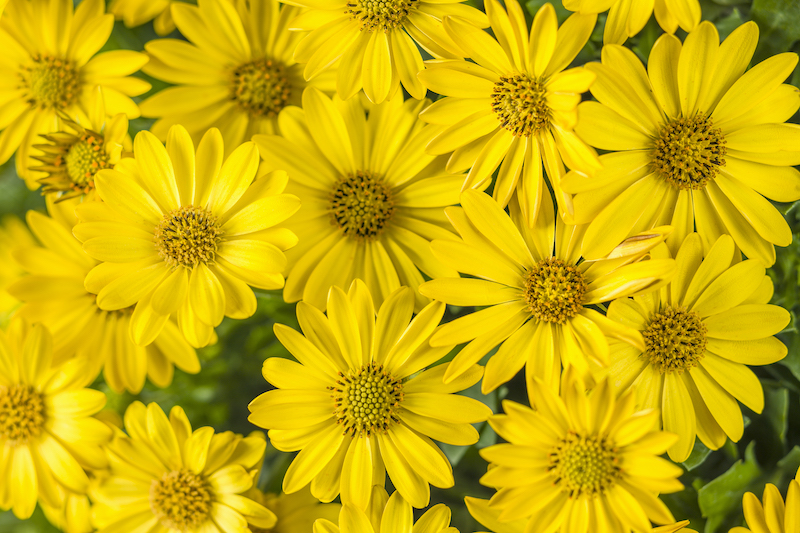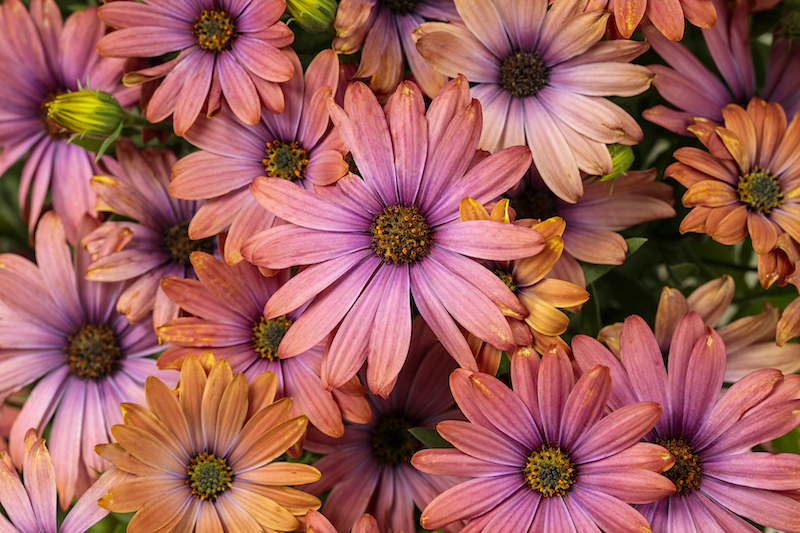African daisies, or Osteospermum spp., are prolific bloomers, providing color from late spring to the first frost of fall. Plants will continue to bloom all season with regular water, sunlight, and fertilizer. Often, African Daisies will slow down and take a rest during severe heat. Cutting the plants back will prepare them to grow more flowering stems when the weather cools late in the summer.

Common Reasons Why African Daisy Isn’t Blooming
African Daisies are tender perennials that are most often grown as annuals. The brightly colored blooms need a very sunny position with at least 6-8 hours of direct exposure. Shadier spots will cause the plants to grow leggy and stop blooming.
African Daisies planted too early in the spring, before the last frost, will grow much slower and are susceptible to freezing and dying early in the spring. African Daisies are only hardy in temperatures above 40 degrees F. An early frost in the fall may also kill off African Daisy. Container-grown plants can be protected by temporarily moving them to a sheltered spot or unheated greenhouse if cold temperatures are expected for only a day or so.
Under-fertilizing or -watering can diminish the blooming ability of African Daisy. Potted plants especially need to be fertilized and watered throughout the season. Provide about one inch of water to garden plants, accounting for natural precipitation. Avoid overwatering, however, which can deprive the roots of oxygen and cause rotting eventually.

Pruning African Daisy To Help It Bloom
Plants grown as annuals are generally known for their profuse flowering. Regular clean-up of spent flowers helps to encourage more blooms to form and prevent the plant from going to seed. As the growing season ends, blooming may naturally diminish as African Daisy prepares for winter dormancy.
Fertilizing African Daisy To Help It Bloom
Regular fertilizing will encourage African Daisy to bloom. Fertilize with a bloom formula containing high phosphorus, such as a 4-10-6. Phosphorus encourages bud formation, whereas high nitrogen can encourage excess foliage growth. Use a diluted liquid fertilizer for quick results. Supplement one watering session with the liquid feed every two weeks.
Organic formulas are the best option for gently feeding African Daisies without burning the plant's roots. Brands such as Alaska Morbloom and Foxfarms Big Bloom are rated by the OMRI (Organic Materials Research Institute) as meeting the USDA Organic growing standards. Alternatively, you can select a formulation for tomatoes, which will provide the correct ratio of macronutrients.
Why African Daisy Isn’t Blooming
- Too much shade (needs 6-8 hours of direct sun a day)
- Not deadheaded
- Too dry
- Underfed
- Rootbound and needs repotted
 |
Author Robbin Small - Published 8-31-2022 |


